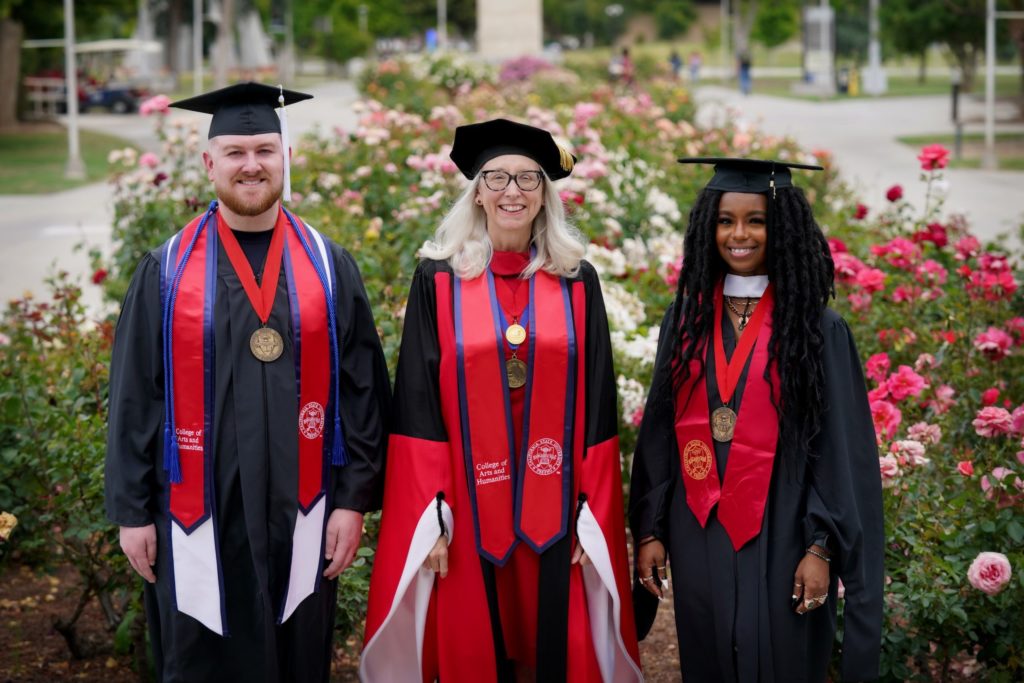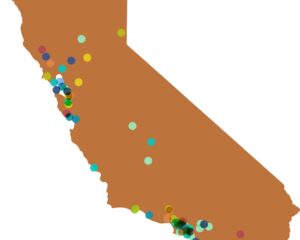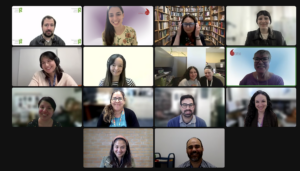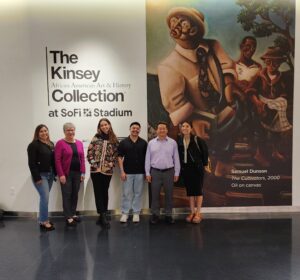In this month’s 3 Questions, we were happy to speak with board member Dr. Honora Howell Chapman, Dean of the College of Arts and Humanities at CSU Fresno. With a BA and PhD in Classics from Stanford University, she started at Fresno State in 2002. Her scholarly research and writings have focused upon the literary and cultural intersections in the Greek texts of first-century Jewish historian Flavius Josephus. In this interview, we learn about Fresno’s rich cultural life, gain Dr. Honora Howell Chapan’s perspective on what the humanities can offer students and communities, and get a tip on sweet summer treats.
What is the role of the humanities in higher education in the Central Valley?
 In California’s Central Valley, the world’s most productive agricultural region, we are fortunate to have a highly diverse and talented student population aspiring to earn college degrees in order to build a better future for themselves and their families.
In California’s Central Valley, the world’s most productive agricultural region, we are fortunate to have a highly diverse and talented student population aspiring to earn college degrees in order to build a better future for themselves and their families.
We have many community colleges in the Valley, five of the twenty-three CSUs and two of the ten UCs. The humanities play a central role in the general education offered in California’s three higher education systems since humanities faculty teach writing, literature, languages, and philosophy courses that help our students shape their identities by critically examining the world and expressing their own vision.
My university, Fresno State, is in the center of the state and the Valley, educating our students with the broadest and deepest humanities (and arts) curriculum within a 100-mile radius. Our faculty work hard teaching a 12-unit load each semester, yet they also achieve great heights professionally. Just last week, Assistant Professor Mai Der Vang won a Provost’s Award for New Faculty and was also a finalist for the Pulitzer Prize for her 2021 poetry collection, Yellow Rain. Fresno State is also home to two former Poets Laureate of the United States who were professors here, Philip Levine and Juan Felipe Herrera.
We also have attracted support recently for two exciting humanities initiatives, an endowed chair in Jain and Hindu Dharma, as well as a new M.K. Gandhi Center: Inner Peace and Sarvodaya, both of which are the first of their kind in the country.
Fresno State is highly committed as a campus to community engagement, giving over one million hours of service each year for the past dozen years, even during the pandemic. Our humanistic service has included organizing free programming for the public on a wide range of humanities topics (including events supported by grants from California Humanities), tutoring children in reading at local community centers, and assisting the creation of spaces at the Fresno Fairgrounds celebrating the many immigrant groups to the Valley, including the most recent addition, an Italian Heritage Exhibit.
It’s important to recognize that Fresno State rests on the traditional lands of the Yokuts and Mono peoples, and we are committed to preserving, transmitting, and celebrating these cultures with our campus and community. Our Linguistics faculty, for instance, worked for over a decade with members of the Chukchansi tribe, including Holly and Jane Wyatt, to create a dictionary and grammar of their language so that Chukchansi can be taught to a new generation.
As Dean of the School of Arts and Humanities, what are you hearing from students these days? What are their hopes for the future, and how will the humanities play a role?
Fresno State students deeply appreciate their education, never taking it for granted since the majority are first-generation and Pell-eligible. As a Hispanic-Serving and Asian American Native American Pacific Islander-Serving institution, Fresno State is a beacon of hope for families throughout the Valley since we offer a vast array of degrees in the liberal arts and professional disciplines. The humanities are the heart and soul of our general education for everyone. The students majoring in the humanities do so because they love to think deeply, create new arguments, and envision a new world of possibilities for themselves and society. They have shown real grit succeeding in their studies during the pandemic, and despite it all, they’re optimistic and have big dreams of a better life. If people listened to them, I think they’d feel much better about the future.
Pictured at the top of the post with me are the 2022 College of Arts and Humanities Undergraduate Dean’s Medalist, Steven Hensley, and Graduate Dean’s Medalist, Audia Dixon. Happily, President Saúl Jiménez-Sandoval, who is also a Professor of Spanish and Portuguese, has just bestowed the highest University honors for graduates, the President’s Undergraduate Medal to Steven and the President’s Graduate Medal to Audia.
Audia Dixon began her college journey at Fresno City College thinking that she would become an elementary teacher, but conversations with Fresno State Art professor Dr. Paulette Fleming steered Audia towards majoring in Art for her BA and MA at Fresno State; her graduate project is a radiant, intellectually engaging exhibition titled “Eden: Pastorals of Black Juvenescence,” a critique of the Eurocentric past in painting while imagining the Black experience in an American landscape marked by domination. In Summer 2020, Audia collaborated on two Fresno murals, one on Breonna Taylor and the other, “Know Your Soil, Grow in Earth, Love Your Roots, & Rest,” the first mural to be created by all Black women artists in Fresno. Audia will be teaching this summer at Clovis Community College and plans to pursue an MFA in Art in the future.
Steven Hensley is graduating with a double major in Philosophy and Political Science, having completed two different honors projects in the College of Arts and Humanities (on philosophical approaches to the idea of tolerance) and the College of Social Sciences. Formerly incarcerated, Steven came to Fresno State through Project Rebound and has founded a non-profit to support other youth who face the challenges he did. Furthermore, he helped revive and is co-chair of the Fresno County chapter of the ACLU and serves on the board of the ACLU of Northern California. Steven will be attending Berkeley Law in the fall, and he plans to use his law degree to set up an organization providing holistic services for the formerly incarcerated to help them re-enter society successfully.
Both Audia and Steven are wonderful examples of the power of an arts and humanities education to transform college students’ lives and inspire them to create a more just, humane, and beautiful world for everyone.
You have deep roots in the San Joaquin Valley. As a fourth-generation resident, what do you want people to know about this part of California?
People work hard out here, especially when laboring in the fields. My father’s relatives and then grandparents started coming here in the 1860s, mostly to farm; my dad grew up on Chowchilla Ranch and went to school in Merced. Many families in the Valley are rooted in the soil, a challenging life, but it keeps them grounded. The Latin word for ‘soil’ is ‘humus,’ and this is where we get the words’ human’ and ‘humanities’—and also ‘humility,’ a quality I see in Fresno State students. They are the reason I came here from the Bay Area to teach, and it has been a life-changing and rewarding experience. I hope that people reading this will visit Fresno State in the future on their way to Yosemite or Sequoia/Kings Canyon since we’ll be offering fascinating programming, for instance, through our new M.K. Gandhi Center, directed by Dr. Veena Howard, who also holds the endowed chair in Jain and Hindu Dharma. And to beat the heat while visiting, you can buy the great ice cream that our students make and sell at the Gibson Farm Market near our campus farm. Please join us at Fresno State soon!And Fresno State has a farm, and the students make and sell great ice cream to beat the heat!





